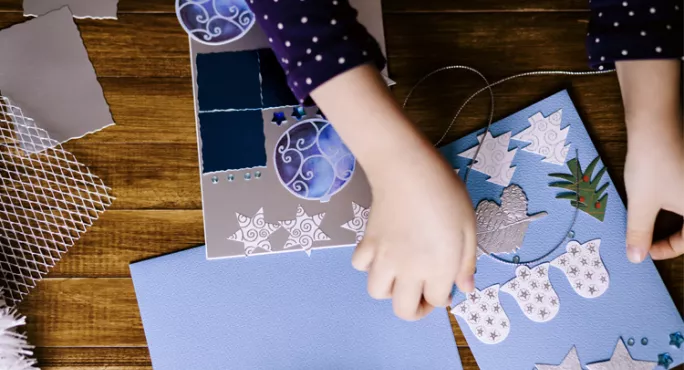- Home
- 8 reasons to ditch the holiday homework
8 reasons to ditch the holiday homework

If you are a parent, you may identify with the feeling of dread I get whenever the end-of-term email from my son’s school pings into my inbox. I click on it with trepidation, praying for no homework.
But there is always homework, and we’re not talking a bit of light reading and a few times tables here.
It reads: “As our topic next term is about journeys, we would like you to spend the holidays constructing a spectacular flying machine to bring into school.”
Those bastards.
Maker tasks: the most hated homework of all.
If you’re a primary teacher, you’re likely to be guilty of setting stuff like this. I used to do it myself - and very smug I was about it, too.
Partly, I set craft and design tasks because of the pressure to set any homework at all. I hate setting homework for such young children and I thought that my pupils would find these sorts of tasks more fun than comprehension questions or numeracy worksheets.
I also had the misguided notion that I could improve my pupils’ interactions with their parents by giving them creative and wholesome activities to do together. Things like baking scones and making villages out of cereal boxes - anything involving quality time that would wrench the kids away from their PlayStations and enforce quality time.
It’s safe to say that everyone hated me, because here’s what actually happens when you set maker homework.
1. Parents have to spend money on craft materials
OK, they’re supposed to be making a scale model of the Eiffel Tower out of household junk, but they’ll need glue, paints to decorate it and any other bits and pieces to make it look more like the Eiffel Tower and less like a stack of Pot Noodle cartons. It adds up.
2. Everyone argues
Finding childcare over the holidays is a nightmare, so dad’s trying to work from home while finding the end of the Sellotape and attempting to stop the baby from eating the cardboard Taj Mahal. Meanwhile, your pupil is throwing a tantrum because he wants to go and play football.
3. You take away from real family time
Families probably want to spend their precious time going somewhere special or even just cuddling up in front of a film together. Nobody’s idea of family fun is a disagreement over a glue gun and a box of pipecleaners.
4. You stifle children’s creativity
Rather than prompting your pupils to be creative, you’re denying them the chance to do things that they’re interested in. My son spent three hours making a music shop out of cardboard boxes the other day just because he felt like doing it. But when a similar task is forced, enthusiasm fades fast and it becomes a boring chore.
5. The parents do it anyway
Competitive parents love these tasks and take over completely. If your pupil’s homemade Egyptian artefact has necessitated the use of a power tool, it’s safe to say that mum or dad did it. Then, there will be one poor kid whose parents made them do it by themselves brandishing a Tiny Tears doll mummified in toilet paper, and looking like they want to cry.
6. You stop your pupils from having a well-earned break
School holidays are for children to relax after working hard all term. Who cares if they choose to do this by climbing trees or playing computer games?
7. You can’t fix family problems
If a parent doesn’t interact with their kids, a homework activity isn’t going to change that. That child will end up anxious and upset because they haven’t done their homework. At the other end of the scale are the children with helicopter parents dragging them from one activity to the next all holiday. Adding an epic homework task to their to-do list just adds to the pressure.
8. There’s little value in it anyway
What are your pupils learning from this project? A parent is more likely to take over than help them to problem-solve, and you lose out on the opportunity to incorporate other areas of the curriculum into the task. So why not set it as a classroom activity so that everyone can benefit from it? And if you think it’s a waste of classroom time, then why set it at all?
In fact, that’s a pretty good rule of thumb for all homework, don’t you think?
Lia Jarmin is a freelance writer and former primary teacher
Keep reading for just £1 per month
You've reached your limit of free articles this month. Subscribe for £1 per month for three months and get:
- Unlimited access to all Tes magazine content
- Exclusive subscriber-only stories
- Award-winning email newsletters



